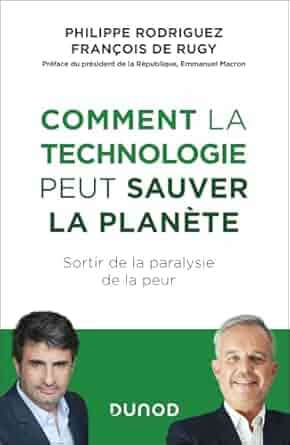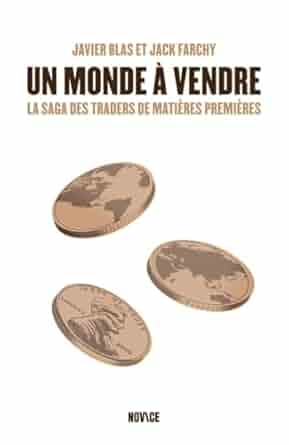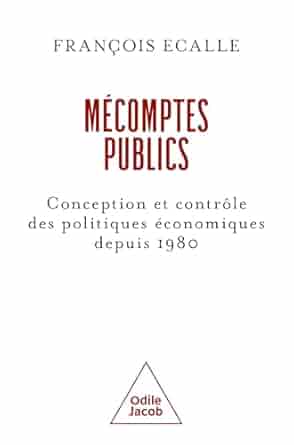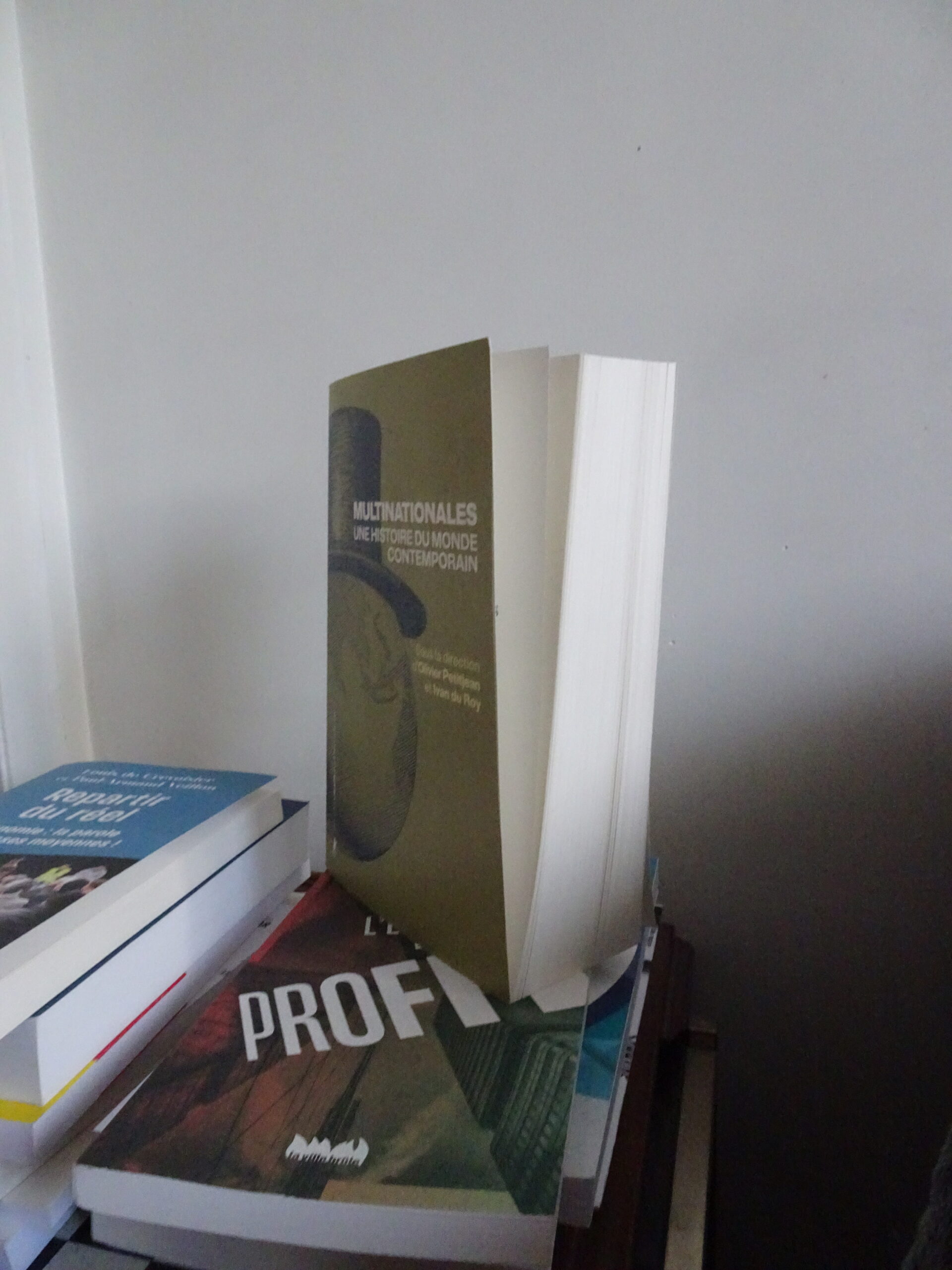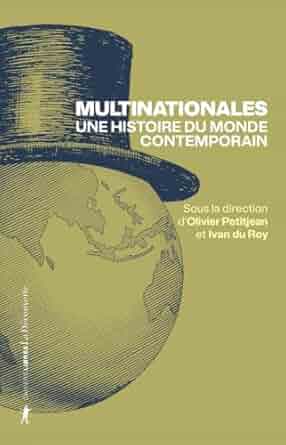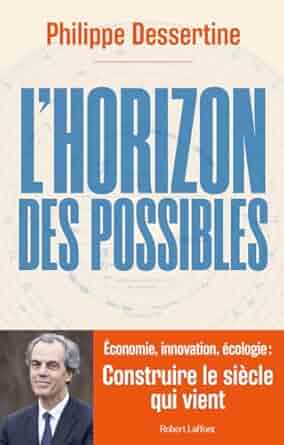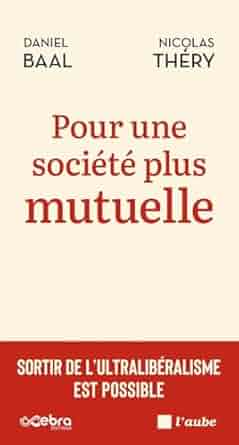“Neither a fantasized return, nor a decline; This struggle is a matter of life and death” We live in a time that forces us into bitter economic rivalries against the backdrop of energy transition. We must move forward without fear or complaint and stick to our agenda. This book by Philippe Rodriguez and François de Rugy, divided into five parts, bears witness to the obstacles to be overcome, the challenges to be met, the initiatives to be undertaken, and the means to be devoted to this national priority, which must give a central place to the deployment of innovations of all kinds to preserve France’s technological sovereignty. In the first three chapters, the authors highlight the narrow path to be traced between a technophile Prometheism and ecological sobriety. The abundant catalog of leads and the enumeration of pillars, energy sources, actions to be taken, and their expected returns are reviewed to achieve energy efficiency. Storage appears to be a crucial element in managing this transition. While France is lagging behind in “cleantech”, disruptive innovations such as SMRs provide it with undeniable advantages. This transition and its complexity are at the heart of diplomatic and geopolitical influences in view of the concentration of energy resources in their distribution in certain parts of the world. In this regard, rare earths, placed at the heart of green technologies, pose a serious dilemma related to the requirement of the highly polluting refining of this resource. The last two chapters highlight the pressing time in this period of budgetary scarcity and the importance of the efforts to be made. The Draghi report of September 2024, with the doubling of the budget to 200 billion euros of Europe’s program for research and innovation, must be reflected in national strategies. The authors call for an administrative revolution as a cardinal condition of success. The opus closes optimistically with eight avenues and a long list of recommendations to think outside the box and boost the energy transition. But it is indeed a paradigm shift that is at stake, with a certain apostolic effect. The uniqueness of this enlightened book can be summed up in a few words: we must act quickly! But the exercise is not simple and seems to have to articulate short-term actions in a long-term approach. Philippe RODRIGUEZ, director of Avolta, and of several companies for thirty years. His experience as a multi-entrepreneur and his various activities allow him to be a particularly wise observer of current themes. François de RUGY, was Minister of the Ecological and Solidarity Transition (20189-2019) and played a key role in the adoption of laws related to ecological issues. As a Senior Advisor at Avolta and an independent consultant, he helps companies and investors develop new ecological models. Reading notes by Freddi Godet des Marais –
Javier BLAS et Jack FARCHY, Un monde à vendre : la saga des traders de matières premières, Edition Novice ( traduction), juin 2025, 405 pages
This book traces the history of commodity trading houses over the last sixty years, from their births to their hands placed on the world trade of oil, cereals and metals in the most remote areas of the planet, where power and money mix. The first part of this book explains how the pioneers of oil trading (Philipp Brothers, then Marc Rich & Co, and finally Glencore) supplanted the 7 major oil companies (including Exxon, BP, Shell, etc.) in terms of trading black gold, by putting oil in the wheels in countries like Russia and others. And the second part of the book, to understand the interactions between countries in Africa and South America, to help support global economic development. A modern world, where the market is king and where multinationals seem to be able to free themselves from any attempt at regulation. Clearly, the author explains that commodity traders, with their actions, have transformed the world economic order, participating in the disintegration of the oligopolies that previously controlled many markets. While the trading houses based in Switzerland (canton of Zug) were able to develop in the greatest discretion, acting in relation with heads of state producing energy and mineral wealth, the latter were caught up by American institutions to stop practices that are often unspeakable. Moreover, while China, since its entry into the WTO, has been the main catalyst for the demand for raw materials on the planet, the trading house landscape has begun to change since its economic slowdown. The latter must address the following three constraints: the United States/China trade war (2018), climate change (electricity), the arrival of Chinese competition developing its own trading structures; without forgetting transparency, a key element of the 21st century. In the end, an interesting book to read for anyone working in the commodity trade or being an analyst in the finance sector. Because without commodity trading, there is no economic development or monetary stability. Javier Blas is a columnist at Bloomberg Opinion covering energy and commodity issues from London. Jack Farchy is a senior reporter specializing in natural resources at Bloomberg News. Reading notes by Claude Georgelet
François Ecalle, Mécomptes Publics, Eds Odile Jacob, 311 pages.
This book is a journey through the personal history of the author and the public accounts of the French state. First of all, we follow the young “centralien” as he integrates into the ENA and discovers, throughout his many training courses, the (dys)functions, the mysteries, and the conflicts of different public services and field administrations. Then, through these 32 years spent in the service of the republic, firstly, at the forecasting department of the Ministry of Finance, we learn, among other things, how the Ministry of Finance works, how budget forecasts are made, international exchange relations, and the lack of cooperation and coordination between the different departments of the ministry. But also, since we have the chance to (re)live the 80s/90s with François Ecalle, we follow him during the price liberalization, the preparation of the euro and the European budgetary rules as well as the difficult opening of services to competition. Then, at the Court of Auditors, we control the banking sector and we discover, at the Banque de France, an accounting system that is heterogeneous to say the least, but also very special accounts and secret state loans, accounting and tax treatments of certain equity investments in BNP and Banexi whose legal exemplarity is not obvious. After the banking sector, the journey continues in public companies in the world of transport and agriculture. We are stunned by the irregularities, the favors obtained, the bad choices, the waste, the absurd reforms, and the calamitous management. Some of the recommendations proposed during the audits have been implemented, but these decisions have been slow to take and sometimes thwarted or canceled by other reforms. It is striking to note the permanence over time of fiscal, economic, financial, and political problems and the measures that should be taken to solve them. The observations and diagnoses on social VAT, pensions, employment policy, sectoral policies such as industry, housing, agriculture, etc., and the recommendations proposed thirty years ago are still relevant today. But all is well, the Court of Auditors continues to publish reports that remain a dead letter, the Treasury Department continues to write to its minister that the public deficits included in the Finance Act are unattainable without recovery of the accounts, the state continues to let its deficit and debt spiral, and the French continue to ask the state for everything. Be careful, however, not to lose our sovereignty through the actions of certain foreign actors… François Ecalle est conseiller maître honoraire à la cours des comptes et président de Fipeco, l’association Finances publiques et économie Ph Alezard
Duterme R., Pénuries – Quand tout vient à manquer, Payot, 211 pages
“The 20th century was the century of abundance. The 21st will be one of limits.” We frequently discuss energy transition, relocalization and sobriety, but partly as if they were simple options. The author leads us to see that these are no longer options, but realities. This book makes this perfectly clear, and not by hyperbole or by trying to scare the reader. It’s not a doomsday story, nor is it about eternal progress. It simply welcomes the fact that we’ve reached the limits. Scarcity is no longer the exception and is now becoming the norm. Oil is at the heart of his analysis. He reminds us of a little-known fact: Energy Returned on Energy Invested (EROEI). From 100:1 at the beginning of the twentieth century, it now stands at 11:1, a figure that threatens our entire equilibrium. Nothing can be done without abundant, cheap energy. Electricity is not a silver bullet, just a vector. It’s a means of transporting energy. The author also mentions minerals and raw materials. We depend disproportionately on scarce resources, often from unstable countries. We use them for everything: telephones, batteries, infrastructure. But if one link breaks, we have no plan B. Freight transport is under pressure worldwide. It has a very low profit margin. One small thing can paralyze an entire production operation. Even industrial agriculture depends on it: fertilizers, machinery, transport… in reality, nothing is autonomous. It’s a system we’ve built ourselves. Over-specialization, globalization and the cult of efficiency have left us unable to cope when things go wrong. We’ve pursued efficiency and forgotten resilience. Renaud Duterme links this to the economic logic handed down by Ricardo and the rise of neoliberalism. The issue is not just technological; it’s a political vision. In the final section, he is less alarmist, but just as serious. He says we’re going to suffer shortages, and the question is really this: do we want to suffer them or be prepared for them? It’s not a question of stopping everything or going backwards. It’s an invitation to reconsider what we make, why and for whom. Relocate where it really counts. To overcome this system of unlimited growth and recognize that this century will have limits – physical and environmental, as well as social. In other words, this is not a technical manual or a political tract. It’s a clear, honest text. It confronts us with reality. It doesn’t try to scare us; it tries to convince us, by giving us the facts, and it succeeds. It’s a book to read not so much for what you can learn from it, but for what you can prepare yourself for. Because, in the future, it won’t just be a question of technologies, but of choices, compromises and even collective thinking. Renaud Duterme holds a degree in development sciences from the Université Libre de Bruxelles, where he also teaches geography. Attentive to questions of inequality and ecology, he is the author of De quoi l’effondrement est-il le nom? (2016, foreword by Pablo Servigne), Petit manuel pour une géographie de combat (2020) and Nos mythologies écologiques (2021). Florence Anglès ‘ note
Oliver Petitjean et Ivan du ROY, Multinationales. Une hstoire du monde contemporain, La Découverte, 797 pages.
The book is monumental in its subject – the history of multinational companies – but also in the number of its authors (56) and its volume (857 pages). It appears at a turning point in the history of multinationals, as their expansion is threatened by the increase in customs duties, the multiplication of environmental standards, and the strengthening of competition rules. Their wealth, power, and practices feed the imaginations – and sometimes the fantasies – of people in both the West and the Global South. They are sometimes accused of being at the origin of certain crises or abuses from which industrialized states and developing countries suffer. The book is in the form of short documented stories and journalistic articles presented in chronological order, from 1857 (the creation of the Singer group) to 2025 (agribusiness and the mining industry in Brazil). The authors’ ambition is to “reintroduce the vicissitudes of multinationals into the great world history”. They want to reveal the real roles played by the key players in economic and social life for nearly two centuries. They deny having written another “black book” on the actions of certain companies, although some articles recall their post-colonialist, monopolistic, commercial, financial, and fiscal deviations… In fact, most of the stories highlight the known – and sometimes unknown – technical, economic, and/or social advances that have been generated by certain major multinational projects. Through the diversity of approaches and styles adopted by the authors, the book shows that the questions raised by the practices of multinationals do not only cover academic issues or political debates, but that they challenge all citizens through the media and social networks. Throughout the chapters, the reader of the book perceives the scale, dynamics and complexity of the systems of multinationalization of industry, finance and trade, which involve both private and public actors, producers and consumers, holders of power or counter-power. The reader then better understands why some multinationals try to “green” and “socialize” their images, because they know, “that like civilizations, they can be deadly.” The authors are university lecturers and researchers, lawyers, journalists, and association leaders. Note by J-J. Pluchart
Multinationales. Une histoire du monde contemporain, sous la direction d’O. PETITJEAN et I. DU ROY, Éditions La Découverte, 864 pages
Note by Florence Anglès The book meticulously recounts and analyzes the history of multinationals since the 19th century. It is neither a diatribe nor a theoretical essay disconnected from reality. It’s a highly structured, well-documented read, aimed at interpreting a major phenomenon of today’s capitalism: the empowerment of private economic agents, who have gradually developed into de facto political agents with significant power but little democratic legitimacy. The founding of the first multinational companies was preceded by two other major aspects of the global economy: firstly, formal colonialism (the opening up of vast parts of the world to non-indigenous occupation and colonization), and secondly, the numerous industrial revolutions. They were sustained by logics of extraction, supply and dependence. They became a cornerstone of Fordism and post-war reconstruction in the 20th century. However, from the 1980s onwards, they began to break free from national regulatory structures. The deregulated and fragmented framework has enabled them not only to expand globally, but also to play by their own rules. The power they wield takes many forms: “Multinationals don’t just adapt to the world order – they reshape it. One of the book’s most important achievements is to link this economic trajectory to a political reading of power relations. Multinationals didn’t simply appear out of nowhere: they are the result of a history, a strategy, and a succession of opaque systems. The book’s revelation is an underlying coherence that we often see only in fragments, a silent renunciation of collective power in favor of unelected actors, exercising their power without a clear mandate, but effectively. This is a difficult read, but essential if you want to understand the true foundations of today’s economy. Olivier Petitjean is a journalist and co-founder of the Observatoire des multinationales. He has worked for many years on issues of economic justice, corporate accountability, and environmental impact. He is also the author of several investigative reports on the role of major corporations in shaping public policy. Ivan du Roy is a journalist, editor, and founder of Basta!, an independent media outlet focused on social, economic, and environmental issues. His work specializes in the critical analysis of economic policies, corporate power, and mechanisms of influence within democratic institutions.
Philippe DESSERTINE, L’horizon des possibles. Economie, innovation, écologie : construire le siècle qui vient, Robert Laffon, 2025, 253 pages.
The author’s objective is to highlight the logic linking the successive shocks – of a financial, economic, health and geopolitical nature – that have occurred since the beginning of the century, then to open avenues of progress for the future, advocating, if necessary, a break with the previous industrial or post-industrial model. The author strives to reconcile history and modernity, transversality and depth, culture and creativity. He presents the French as a case study. He believes that they are victims of their fantasized past, but that as heirs of Montaigne and Descartes, they are able to overcome their fear of tomorrow and to show both logical sense, responsiveness, and above all creativity to build their future. The book is organized into nine chapters raising (meta) issues that are both transversal and complex: new economic and social models; the disruption of the old world; immobility and mobility; growth and algorithms; the geopolitics of influence and brains; hyper-innovation and hyper-intelligence; new values and new growth; extra-monetary impact. The book stands out from the conventional academic work of economists, historians, and political scientists. Its writing alternates between concepts and narratives, quotes and contemporary examples. It is part of the narrative economy, illustrated by the work of several Nobel Prize winners in economics, such as Acemoglu, Johnson, and Robinson. It reflects a phenomenological approach to economic and social facts, which have most marked Western enlightened minds. These phenomena are not presented in chronological order or geographical logic, but according to the occurrences of the events that have most marked the consciousness of consumers and producers. This reading of history is served by a style that is both educational and creative, with a sense of the formula – especially based on paradoxes – which is illustrated in particular in the titles of chapters and paragraphs. Philippe Dessertine (professor at the University of Paris I, director of the IHFI and lecturer) delivers in his book a masterful lesson in economics, a message of optimism and a call to the awakening of disillusioned citizens. J-J.Pluchart’s note
BAAL Daniel, THERY Nicolas. Pour une société plus mutuelle – Sortir de l’ultralibéralisme, L’aube Eds De, 168 pages.
Mutualism is by definition a long-term process, and one could almost praise it for its patience. How can it be the solution to a fragmented society, to the rise of individualism, and where each decision accelerates at the pace of AI, … What remains of the legacy of Raiffeisen, one of the founders of mutualism and its raison d’être of the “Help and Serve” era? This is the subject of the essay written by Daniel Baal and Nicolas Thery, who wish to convince readers that mutualism is anything but out of time and that it has never been more modern in the face of the challenges that lie ahead. Through their experiments as Presidents within Crédit Mutuel Alliance Fédérale, they present their decisions and strategies, particularly since the adoption of the status of a company with a mission in 2020. The essay promotes mutualism through evidence from its stakeholders. Mutualism is only effective if it is nourished by the diversity of its elected representatives and employees around a common vision. It is the commitment of the collective that takes precedence over the interest of the individual, by putting society and its needs at the heart of attention. The authors remain objective, however, because for this mutualism to remain true to its values and ambitions, there is still some way to go to improve the diversity of profiles and the feminization of management and supervisory bodies. “Stairs are cleaned from the top”: the exemplarity imposed by the function is essential to engage all stakeholders. Faced with the consequences of global warming, an interesting parallel is described in the essay between a financial crisis and a climate crisis. The accumulation of speculative wealth or greenhouse gases eventually gives way. Mutualism, by being centered on the needs of its territory, responds to the urgency of environmental and solidarity issues. The authors defend the societal dividend announced in 2023. By allocating 15% of its net income to the benefit of society each year, it wishes to act and support the territories in the ecological transition. Not to mention that Crédit Mutuel, like its 2 competing mutual banks (Crédit Agricole and BPCE), are the first contributors to corporate tax in France and thus to the financing of public services and investments necessary for energy and societal transitions. Coincidentally, this essay is published in the “International Year of Cooperatives 2025” decreed by the UN. One more argument, so that the foundations and values of mutualism must be taken up by all companies in the social and solidarity economy; and all citizens who wish to act “for a more mutual society”. Note by Sophie FRIOT
Anne LAUVERGEON, Un secret si bien gardé, Grasset, 2025,201 pages
A graduate in physical sciences and chief engineer of Mines, she founded Areva and made it the world leader in nuclear power. Today, as head of ALP, she advises companies, governments and entrepreneurs on their strategies. The author, a privileged witness of the French nuclear industry, offers her reading on the “Saga” of nuclear power in France, delivers her diagnosis on the existing situation and finally proposes avenues for reflection for the future. Energy has been the determining factor in the evolution of humanity. It was so with the domestication of fire about 400,000 years ago, wind and solar in the Bronze Age, and then in the late 18th century with coal and hydraulics, joined by oil and gas at the beginning of the modern era. Profound social, political and economic changes accompany each energy transformation. From the end of the 19th century, France, a major consumer of fossil fuels, developed the desire to reduce its dependency by moving towards an energy mix and diversifying its supplies. The wars in the Middle East and the loss of gas and oil fields in Algeria reinforced this orientation, which, from 1974, included a nuclear energy component. The official announcement, in 1974, of a vast nuclear program, subject of a political and trade union consensus, was based on the mastery of a good technology. The announcement allowed the sector to accelerate and, above all, be financed. In the late 1990s, France had five global giants (Total, GDF Suez, Alstom Power, Areva, EDF), in a context of security and global recognition. From the 2000s, this building was challenged by environementalist movements, suffered the European doxa, was deconstructed by a national policy largely influenced by the choices of personalities from most anti-nuclear movements, by the virtual abandonment of hydroelectric energy, by environmental activism, by the growing weight of Germany, a coal subscriber, in European decision-making process. These factors added together explain the downgrading of France in the ranking of the level of payload (Ratio of actual production/theoretical capacity), from over 90% to less than 70%, which relegated it from the top to the last of the 32 countries that have developed nuclear energy. As a result, French electricity, once the cheapest in Europe, has become more expensive with its industrial consequences and the impoverishment of the country, Europe having indexed the KWh on the marginal price of the last KWH produced by natural gas plant ie in Germany… In addition to this observation, there are many French specificities: voluntary limitation of the nuclear energy production from 20 to 80% depending on the efficiency of renewable energies, which would partly explain the erosion of the circuits; a pause time of 100 days every 12 months in France compared to 38 days every 18 months in the United States. This difference is all the more remarkable since the fuel loading in the United States is provided by Framatome. It is necessary to underline the absence of a universal parameter, the payload, referring instead to the TWh taken as a ceiling, corresponding to a maximum payload of 70% whereas elsewhere, the latter is between 93 and 88%! Finally, is the current structure (EDF, RTE, and Enedis) a guarantee of transparency, efficiency, and economy? In conclusion, the author highlights the shortcomings of our industry and the means, without colossal investments, to remedy them by giving back to nuclear and hydraulic energy their preeminence, the urgent need for a policy based on ambitious objectives to halt the decline of our industries and give purchasing power to consumers, communicate to make our decisions understandable, avoid about-turns without impact studies, and finally introduce more professionalism to avoid amateurism in conflicts of national and European interests. A very dense work, documented with a widely developed European part (ECSC, Brussels) which allows us to better understand the underside of Franco-European decisions and the state of France. Anne LAUVERGEON, to whom we owe “The Promise” (Grasset) Note by Hubert ALCARAZ
Dominique Foray, Innovations – Une économie pour les temps à venir, La Découverte, mai 2025, 320 pages
“Death Valley”! This is the first notion that appears in a randomly found figure entitled: The life cycle of a start-up. It is all the more striking that the said “valley” does not end up extending over a period that we imagine to be leading to all dangers. This may be an explanation for the fact that, while they have experience, a network, and capital, executives of large groups invest little in start-ups, as shown in a recent study by Forvis Mazars. These are two different worlds (The word “risk” in venture capital is certainly not foreign). Beyond this anecdotal knowledge, we have in our hands a book that does not deny Schumpeter and his creative destruction, but introduces a number of concepts that are sometimes well established (such as positive externalities of all kinds or spillovers) but also less known (such as innovatization) to explain how large programs like Apollo can be great technological successes, but without marked innovation. The difference with SpaceX is that it is centered on innovation driven by a change in value, a reduction in costs, where business opportunities explode. The three parts of the book focus with the microeconomics of innovation, macroeconomic and historical analysis up to the end of the twentieth century. The last part, very ambitious (if we refer to the traditional use of the idea of innovation) has no other purpose than to define an economy capable of “contributing to the solutions of major societal problems”. Incidentally, Dominique Foray, a member of the Swiss Science Council, does not fail to point out how Europe would – according to him – have already lost access to space, despite a Brussels agenda tinged with technological sovereignty and strategic autonomy, as well as his “dissection” of the curious animal that is the CNRS, which is particularly cruel when comparing this noble institution to the Swiss system. Dominique Foray is Professor Emeritus at the Swiss Federal Institute of Technology in Lausanne and a member of the Swiss Science Council. His work focuses on the knowledge economy, the economy and innovation policies. His work on smart specialization has strongly influenced the regional policies of the European Union. Alain BRUNET


